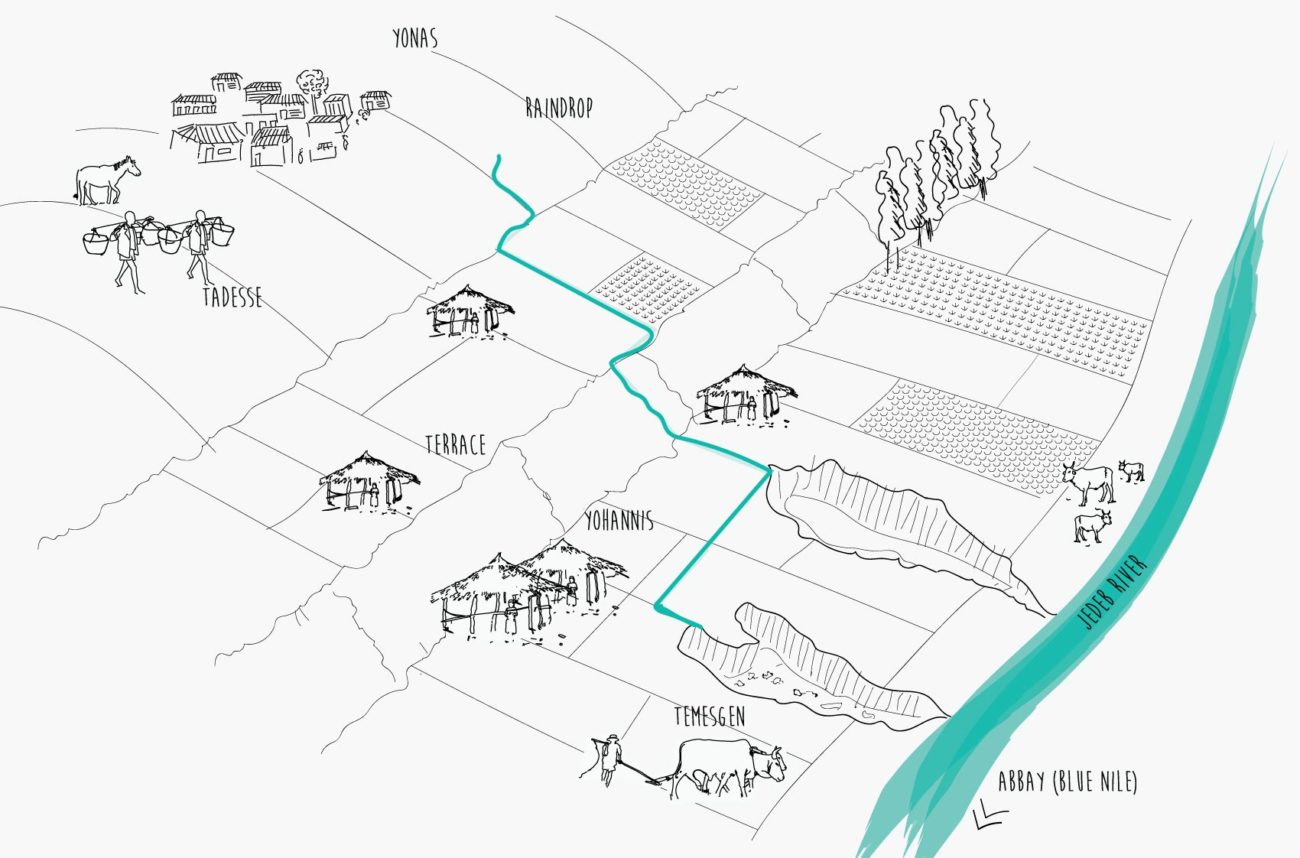Erosion in Choke Mountains
This case study analyses how state power and generational conflict are inscribed in a hillslope of the Ethiopian highlands through what is arguably the Nile’s largest modern hydraulic project in terms of labour: the state soil conservation programme in which more than 10 million people are mobilized every year to work on soil conservation for 20 -40 days.
I explore the mutually constitutive relations between, on the one hand, the creation of a different geographical/generational peasant positions on a hill slope through engagements in programmes of land distribution and modern soil conservation and, on the other hand, strategies of drainage through which a powerful generation of land holders (35-50 years) manages to divert water to lands of older generation sharecropped by young landless families.



